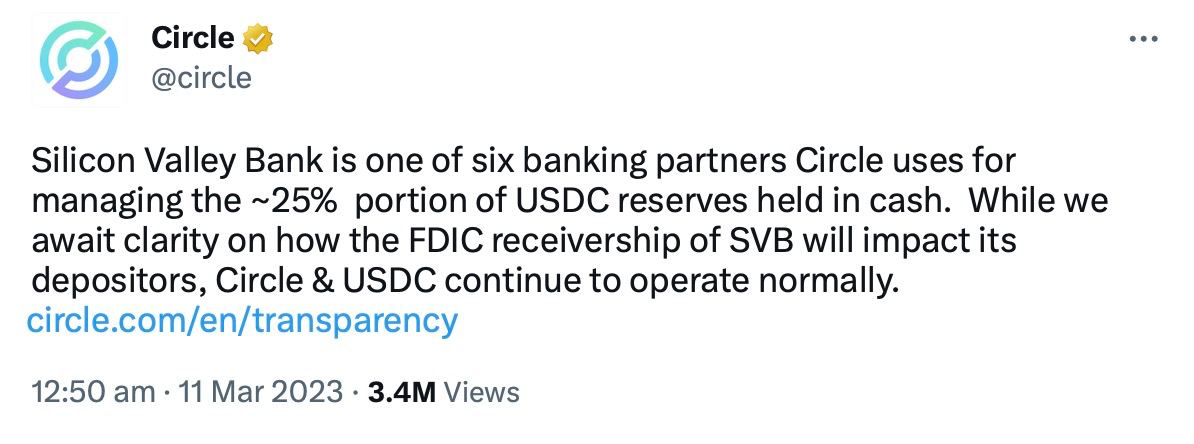Silicon Valley Bank Collapse

This blog post will cover:
- Why did SVB collapse?
- What happened after SVB closed?
- Conclusion
Silicon Valley Bank (SVB) was one of the top 20 American banks before it was closed by the California regulator on March 10, 2023.
This situation affected the technological sector and especially the crypto sphere because the bank had been engaged in providing banking services for many tech companies, including lots of startups. This field is associated with high risks, which is why such specialization is rare.
SVB closure had an even more significant effect, particularly because it came almost simultaneously with two other similar events: crypto-friendly bank Silvergate stopped operations on March, 9; and Signature, which also worked actively with crypto companies closed on March, 12.
In this article, we will go through the events that caused the bank’s demise and how it affected the crypto sphere.
Why did SVB collapse?
While there are many reasons that contributed to the collapse, there are two main ones that are interconnected: the bank’s exposure to long-term securities and panic.
When it comes to the first aspect, in 2022, SVB invested a lot of bank deposits in long-term treasuries and other securities to earn more profit. However, recently SVB's bond portfolio experienced a drop in value.
In the same year, the tech sector was hit by economic factors leading to a decrease in venture capital, causing many of SVB's bank customers to withdraw their funds. Consequently, SVB had to sell its bonds at a significant loss, creating distress among both customers and investors. When SVB announced raising capital, panic-stricken customers began withdrawing their assets. Within 48 hours of this announcement, SVB stopped operations.
What happened after SVB closed?
The California government designated the Federal Deposit Insurance Corporation (FDIC) to protect customers’ deposits. On March 12th, FDIC declared that it would ensure all deposits at SVB, even though normally they cover up to $250,000 per depositor. Unfortunately, SVB's stockholders and investors will not receive compensation for their losses.
Many crypto companies made official announcements on whether or not they had any exposure to the bank. For example, Tether, Binance, and many others denied affiliation with it. Ripple had some exposure to SVB, and Circle admitted some serious connections.
Even though the issuer of USDC promised to keep working normally (which it did), a lot of holders started to withdraw their assets, and it led to the coin temporarily depegging from the US dollar (at one point on March 11, 2023, its price dipped and it was traded for less than 88 cents). Some other stablecoins also depegged (for instance, DAI and USDD).
Simultaneously the price of USDT and BTC increased as people were trying to move assets quickly. USDC price went back to normal on March, 13.
Conclusion
The results of all events that happened recently with SVB, Silvergate, and Signature will likely have long-term consequences for the industry because it will become even harder for tech startups and crypto companies to get financial services. On the bright side, maybe this situation will give a push for crypto companies to move towards creating new blockchain projects connected to banking.
To prevent similar situations, the Federal Reserve Board started a special $25 billion program. It will provide loans to fight banks’ liquidity problems if needed.
All in all, the SVB collapse might become a cautionary tale to other banks and make them reevaluate their policies and make them less risky. Hopefully, even though regulator control in regard to everything crypto-related does not seem to be going anywhere in the near future, banks will still work with tech companies to support innovation.
SimpleSwap reminds you that this article is provided for informational purposes only and does not provide investment advice. All purchases and cryptocurrency investments are your own responsibility.


